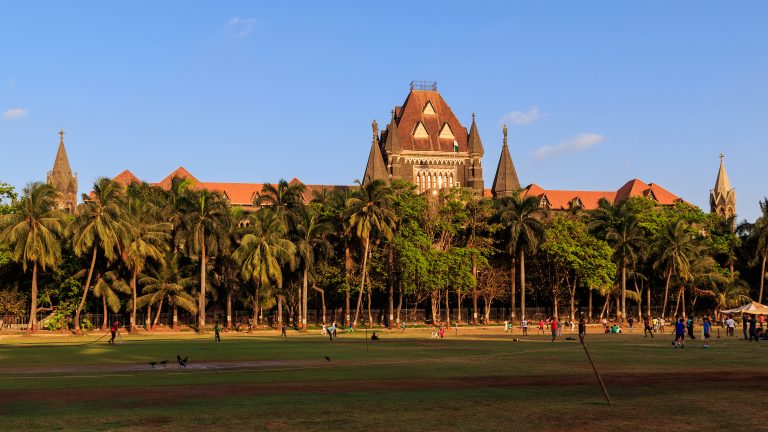The Bombay High Court on Wednesday awarded compensation ranging from 19.5 lakhs to 33 lakhs to seven former salesmen of shoe company Bata who were terminated in 2007 after refusing to adhere to modified roster for operating showrooms seven days a week with extended hours.
Justice Sandeep V Marne observed that they were terminated without any enquiry but refused to reinstate them observing that 16 years have elapsed since their termination, and they may not be able to discharge duties as salesman effectively. The court awarded a compensation of 75 percent of the back wages for last 16 years.
“Considering the nature of job of salesman and rapid advancement in the industry, it is not known whether the Complainants would now be in a position to discharge duties as salesman in the retail outlets of Bata effectively… in my view, ends of justice would meet if Bata is directed to pay lump-sum compensation of approximately 75% of backwages during last 16 years (determined on the basis of last wages drawn by them) to each of the Complainants in lieu of reinstatement and backwages”, the court held.
In 2007, Bata India Ltd, a footwear manufacturing company with a widespread retail presence across the country, decided to operate its showrooms in Mumbai, Thane, and Pune all seven days of a week with extended hours, in order to mitigate losses. The state government permitted this on the conditions that a weekly holiday will be given to each employee and the shops must be shut by 9:30 pm. Bata prepared a duty chart for this purpose. However, some of its salespersons opposed the altered working hours and not having a designated day as a weekly holiday.
Also read: Soma Pandey joins Tredence as Chief Human Resources Officer
Bata terminated their services, treating their refusal to adhere to the roster as misconduct. The affected salesmen filed complaints under Section 28(1) of the Maharashtra Recognition of Trade Unions and Prevention of Unfair Labour Practices Act 1971 (MRTU & PULP Act) before the Labour Court. The Labour Court held that the salespersons were ‘workmen’ under the Industrial Disputes Act and awarded them reinstatement with 50 percent back wages. The industrial court upheld this decision.
Thus, the salesmen challenged this decision before the High Court seeking 100 percent back wages. Bata also challenged this decision claiming that the salesmen were not workmen and thus the Labour Court had no jurisdiction over the dispute. The question before the court was whether the salesmen could be classified as ‘workmen’ under the Industrial Disputes Act, 1947 (ID Act) and consequently ’employees’ under the MRTU & PULP Act.
Bata contended that the primary responsibilities of the salesmen included promoting the company’s products, selling footwear, canvassing sales, attending to customer queries, and engaging in salesmanship techniques. It argued that the job of a salesman entails following protocols known as the “Bata Five Steps,” which involve greeting customers, asking questions to understand their needs, showing them products, adding on and closing the sale, and thanking them. Bata argued that the salesmen were ‘sales promotion employees’ and such roles did not align with the definition of a ‘workman’ which involves manual, unskilled, skilled, technical, operational or clerical work.
The definition of ’employee’ under the MRTU & PULP Act includes sales promotion employees under the Sales Promotion Employees (Conditions of Service) Act, 1976 (SPE Act). However, since the SPE Act only applies to the pharmaceutical industry, Bata’s salesmen cannot be considered employees under the MRTU & PULP Act based on this definition, the court noted. Therefore, the salesmen had to establish their status as workmen based on the nature of their duties and responsibilities, the court said.
The court considered the various duties and responsibilities outlined in the standing orders and regulations formulated by Bata, outlining the diverse tasks assigned to the salesmen, including customer service, preparation of cash memo, stock management, cash handling, administrative duties, quality control, and other shop-related responsibilities. The court concluded that these multifaceted duties indicate that the salesmen can be considered “workmen” under the provisions of the ID Act.
The court found that Bata had not conducted any inquiry to prove the alleged misconduct, and thus held the terminations to be illegal. The court directed Bata to provide a lump-sum compensation of approximately 75 percent of the back wages to each affected salesman, within four months. The court dismissed Bata’s petitions challenging the classification of salesmen as workmen as well as the salesmen’s petitions seeking 100 percent back wages. The court also ordered Bata to pay interest at 8 percent per annum if the compensation was not provided within the stipulated period.
Case no. – Writ Petition No. 5862 of 2018 with connected cases
Case Title – Kiran P. Pawar v. Bata India Ltd. with connected cases
Stay connected with us on social media platform for instant update click here to join our LinkedIn, Twitter & Facebook



































